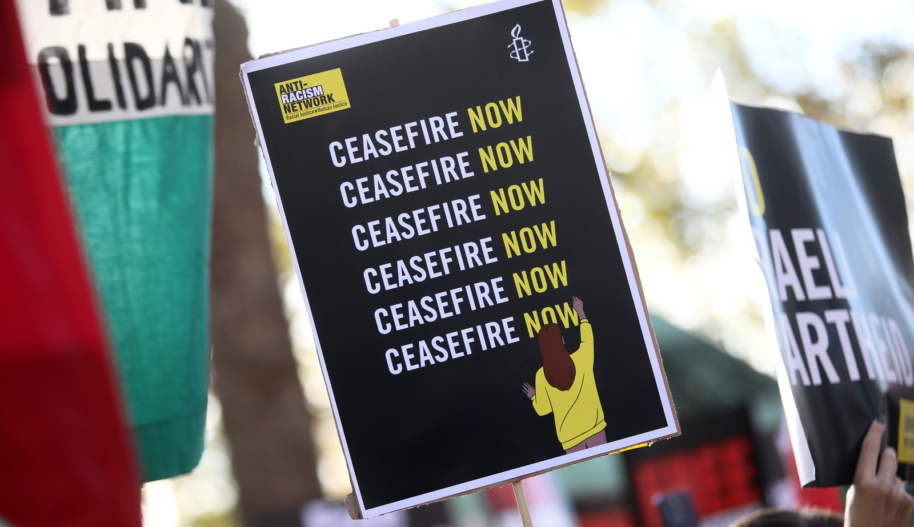Amnesty International Canada urges universities, government authorities and law enforcement to ensure the safe protection of people’s right to protest at student demonstrations and counter protests emerging on campuses across the country.
The student protests in Canada respond to the humanitarian disaster unfolding in Gaza, where Palestinians currently face a shockingly high death toll caused by Israel’s relentless bombardment and the denial of humanitarian aid.
“Students and community members must be able to engage in meaningful dialogue on human rights issues on campus and protest peacefully when their hearts are called to action,” said Ketty Nivyabandi, Secretary General of Amnesty International Canada’s English-speaking section.
“The situation is Gaza is critical. Students may have loved ones affected by the ongoing crisis. We must provide a safe space for students to grieve, to speak freely, and to exercise their right to protest in their communities on campus. Any attempt to silence, harass or intimidate those speaking out is a violation of their human rights.”
The right to protest peacefully in public spaces on campuses is protected under the Canadian Charter of Rights and Freedoms and international law. The freedom to express opinions and the freedom to assemble are core components of Canadian law and the UN’s Universal Declaration of Human Rights. Academic freedom is also central to the right to education under international law. Universities and colleges across Canada have a responsibility to create a supportive environment for students to engage in dialogue on complex issues and collectively assemble to present their opinions. Police or campus security should only be called upon as a last resort and only under limited circumstances of escalating violence, incitement of violence, or discrimination.
“Amnesty International is deeply concerned by the repression of pro-Gaza protests and free speech, including the recent keffiyeh ban in the Ontario legislature, which are all stark human rights violations. We urge authorities to reverse course immediately and safeguard the fundamental right to freedom of expression,” said Nivyabandi.
Right to protest has firm basis in international law
Protests empower individuals and groups to express dissent, opinions and ideas, expose injustice and abuse, and demand accountability from those in power. With collective mobilization, creativity and defiance, people who protest are a thorn in the side of those who abuse their power. By helping to shake up rigid and unaccountable power dynamics and structures, protesting has been a vehicle for advancing human rights.
International human rights law protects the right to protest through several separate provisions enshrined in various international and regional treaties which, taken together, provide protests with comprehensive protection. Even though the right to protest is not codified as a separate right in human rights treaties, when people engage in protests, whether individually or collectively, they are exercising a variety of rights, which can include the rights to freedom of expression and peaceful assembly.
For more information, see Amnesty International’s global Protect the Protest Campaign.
Take action
For additional actions and an overview of the current crisis and Amnesty’s work on Israel and the Occupied Palestinian Territories, visit the toolkit on our website.













